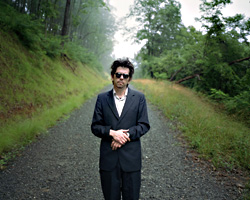Alasdair MacLean, frontman for British retro mope rockers the Clientele, is as unapologetic about his band’s signature sleepy sound as he is unafraid to share his opinions about pop in his homeland. The band’s 2005 release, Strange Geometry, was a melancholic marvel, an effort that should have come with a warning sticker that read “Not for Manic-Depressives.” Speaking from London a few days before the start of an American tour, MacLean comes across as a literate and charming lout, an outspoken but surprisingly cheery geek who marvels at the American experience.
Darryl Smyers: Your lyrics are full of literary allusions. Do you have that much faith in the level of education of your audience?
Alasdair MacLean: No, I don’t. Of course I don’t. The idea, I suppose, is that there are different levels that the songs can work at. I’ve always liked songs that can appeal to the people who just want to dance and also appeal to the pseudo-intellectuals. The curse of making the kind of music that we do is that the kind of people who come backstage are young men with burning eyes who want to share their poetry.
The band has had greater success in the United States than in Britain. Why do you think that is?
Everybody asks me that question, but I can’t find an answer for it. I think it might be because we are very fakely English. I mean, I’m Scottish, and I think the image we project is more trans-Atlantic.
The band’s sound is often described as dreamy or hazy, even sleepy. Does being laid-back mean possibly not engaging the audience?
Absolutely. If you pair our band with a band that’s really fast, you are heading for trouble. Live, we tend to be a little more dynamic. We did this one tour with Spoon, and I think we came on and absolutely sent the audience to sleep. It got to be depressing after about five shows, and we had another 35 in front of us.
I understand the band will go into the studio at the end of this tour with Mark Nevers of Lambchop. What different directions might you pursue?
It’s going to be a very, very pop record. It’ll be a record that people can actually dance to, at least the majority of it. It’s not going to be one of those horrible records that British bands come over and make when they want to be alt-country. We just wanted to make it in America because people seem to be better at their jobs.




